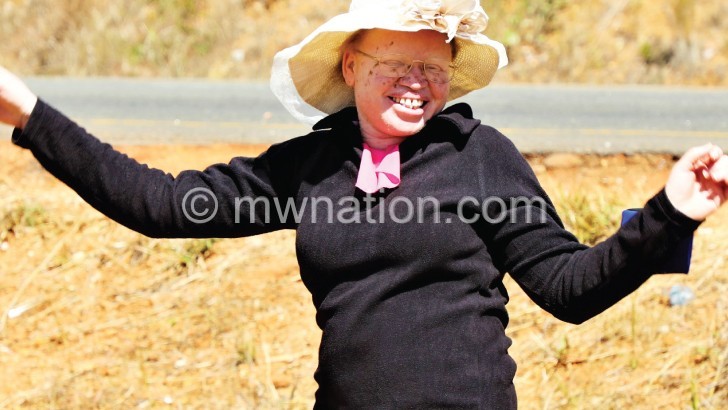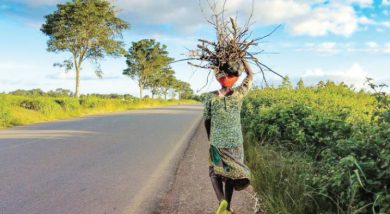The curse of being disabled
On a Monday morning, Stella Chiwaka, a 28-year-old primary school teacher in Mchinji, left her home to seek family planning services at a nearby health facility.
She does not want a child anytime soon, but what greeted her at the facility made her wish improbable. On this day, a male service provider was on duty.
She says the service provider asked her two questions consecutively: “Do you experience sexual feelings?” and “Are you sexually active?”

While Chiwaka thought the questions were normal, she was startled by the subsequent discriminatory statements.
She was born with albinism and says the service provider was surprised that she needed contraceptives.
“It is because of my skin colour,” says Chiwaka. “The service provider wondered why I need sex and who would love to have sexual intercourse with me. To him, I need to live in exclusion.”
She claims to have repeatedly suffered stigmatisation in her community, but did not expect it at public facilities such as hospitals. Baffled by the remarks, Chiwaka says she left the clinic without accessing the service and now feels discouraged to try another health facility. She says her only hope is pharmacies.
Chiwaka’s story mirrors the challenges women with albinism and other disabilities face when they seek health services, particularly contraceptives in public facilities. The uptake is still low. United Nations says Malawi’s unmet need for family planning among married people is at 19 percent and among the unmarried is at 40 percent.
However, the most affected are women with disabilities. Those who are deaf and blind are ignored when packaging sexual and reproductive health information. For others such as Chiwaka, lack of melanin on their skin exposes them to ridicule when accessing contraceptives.
Surprisingly, this is happening amid several interventions. A number of contributing factors are being raised. Among them is lack of information on the right to sexual and reproductive health and failure to report the abusers to authorities.
United Nations Population Fund (UNFPA) is teaming up with stakeholders to bridge the gap.
Currently, it is supporting Malawi National Association of the Deaf (Manad) and Parents of Disabled Children Association of Malawi (Podcam) in a project aimed at promoting access to quality sexual reproductive health for the youth with disabilities. The project started in October 2017 and is being implemented in collaboration with ministry of Health, Youth Development and Sports and Gender, Children, Disability and Social Welfare.
So far, 125 young women with disabilities, Chiwaka, have benefited from the first phase of the project. UNFPA says the aim is to increase knowledge of the challenges faced by youths with disabilities and to ensure that they are included in youth networks.
During the training, the participants revealed serious abuses by both community members and health service providers. While some like Chiwaka are able to seek the services elsewhere, many others cannot afford the costs.
Coupled by lack of accurate information, the situation exposes them to risky sexual behaviours that result in unwanted pregnancies and HIV infection.
One of the participants, Mphatso Seda, who is deaf, says if such trainings had started a decade ago, she would not have fallen in to early pregnancy trap.
“I could not have a child at the age of 15,”says the Mangochi resident. ”I have gained knowledge, which will enable me to make informed reproductive health decisions.”
Manad programmes officer and sign language interpreter Bruno Mwase says: “Investing in sexual and reproductive health for youths with disabilities is the most effective way of promoting equitable and sustainable development to ensure no one is left behind.”
Chiwaka, who dreams to obtain a degree in education in the near future, wants to protect other young women from the abuses she faced. She is mobilising peers in her community, especially those with disabilities to have a platform to discuss sexual and reproductive health and rights, including family planning. She has since formed Nyuka Youth Club.
Her dream responds to the global goals of increasing access to sexual and reproductive health information and services to control population growth. There are fears that with the current fertility rate, Malawi’s population will hit 26 million by 2030.
Malawi is a signatory to the Cairo 1994 International Conference on Population and Development and the African Union Maputo Plan of Action, both of which advocate for integrated sexual reproductive health services. Last year, Malawi adopted the 2017-2019 National Sexual and Reproductive Health and Rights Policy which replaces the 2009 Policy that expired in 2016. It articulates issues that are central to the development of health delivery systems that address interests of all groups of people, including the disabled.





